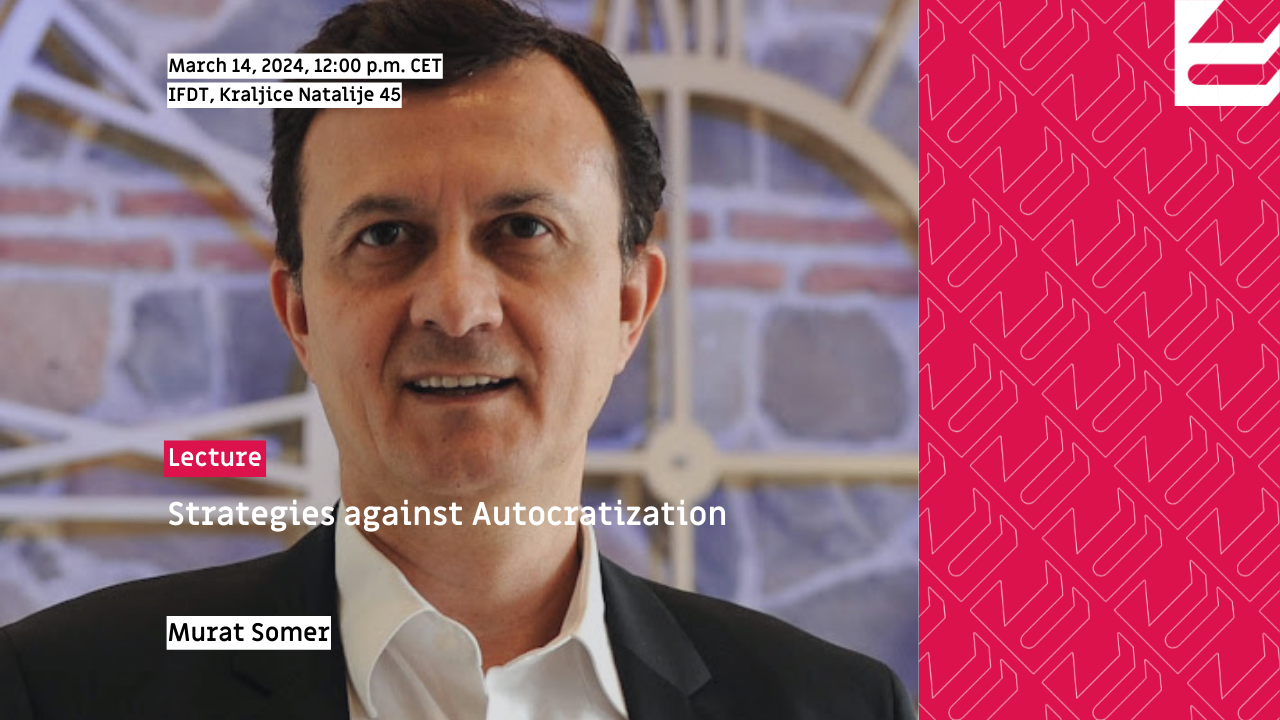
[LECTURE] Strategies against Autocratization – with Prof. Dr. Murat Somer (ActiveLab)
Severe polarization fosters “autocratization” by which we mean the gradual erosion of democratic quality in democracies and the democratic elements of electoral authoritarian regimes. While temporary upsurges of polarization limited to politics may be part and parcel of politics and may even help democratization, as argued by a large body of research, “pernicious polarization” – the division of society into mutually distrustful Us versus Them camps in which political identity becomes a social identity – has negative consequences for democracies and for democratization in autocracies.
A society locked into pernicious polarization views politics to be in an exceptional state, in which each side views the other political camp and their supporters as a threat to the nation or their way of life and considers extraordinary and forceful policies as legitimate to defend its interests. Under such conditions, citizens and political actors alike have incentives to endorse non-democratic actions to gain or keep power, and to prevent or remove their opponents from power.
This presentation will be of great value to students, academics, and researchers interested in politics, political regimes and theories, democracy and democratization, autocracy and autocratization, polarization, social democracy, and comparative government.
Keynote speaker:
Prof. Dr. Murat Somer, Professor of Political Science and International Relations at Koç University, Istanbul
Dr. Ivan Ejub Kostić, Research Associate, Institute for Philosophy and Social Theory, Belgrade
Moderator: Dr. Gazela Pudar Draško, Director of the Institute for Philosophy and Social Theory, Belgrade
Short bio:
Murat Somer is a Professor of Political Science and International Relations at Koç University, Istanbul. He is an expert on polarization and de-polarization, religiousand secular politics, ethnic conflicts, autocratization, and democratization. Somer was a visiting scholar at several prestigious international universities, as Princeton University (2010-2011), Stockholm University (2013), Harvard University (2016-2017) and Stanford University (2019). He has been an active participant in and advisor to civil society, NGOs as well as political parties on issues related to democratization, de-polarization and rule of law.
